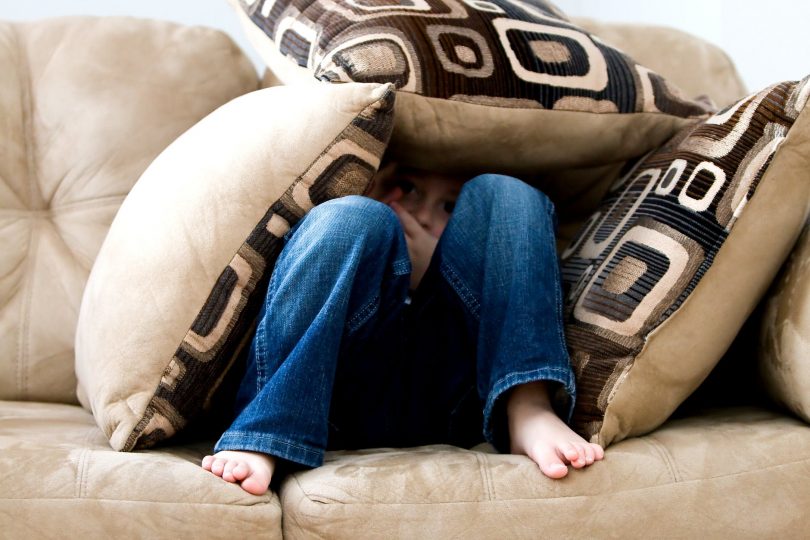Most adults think of their childhood as the happiest time of their life. But we forget too quickly that being a child, especially in a pandemic, can be stressful.
Pressure and stress are emotions we’ve all experienced since the coronavirus outbreak, and can have a direct effect on our mood, which may explain why many experts believe it can lead to depression. With children’s routines pulled from under their feet and home-schooling now becoming the new normal, it’s no wonder that many children and young people are struggling with their mental health.
From loss of interactions with friends to confusion around academic expectations, there are many aspects of not just pandemic life, but also modern life that can lead a child or teenager to feel stressed, anxious and worried. Ahead of this year’s Children’s Mental Health Week, the wellbeing experts at CABA outline some of the common triggers and offer their tips on how to support a child who is experiencing stress or depression.
School and Homework
Many children feel under pressure to do well at school, and this is only enhanced due to most lessons now taking place virtually. For some, the combination of daytime lessons plus the homework can seem overwhelming, and if a child falls behind this can lead to stress. It can also often mean they don’t have enough free time to play and blow off steam.
Making Friends and Peer Pressure
Children who don’t make friends easily are likely to feel isolated. Add to this the restriction of lockdown and making connections with new people and those they perhaps wouldn’t normally mix with is even harder. Children can also worry when they argue and fall out with their friends. Many children feel under pressure to fit in, and sometimes this means they do things they may not feel comfortable with or are unsure of.
Bullying
As a parent, there are certain things you can look out for that may suggest your child is having a problem with bullying. Which now might be easier to spot as they spend more time at home. These signs can often include:
- Becoming withdrawn, nervous and losing confidence
- Performing badly at school
- Not wanting to engage with schoolwork (for instance, pretending to be ill)
- Not eating or sleeping well
- If your children are still attending school, look out for signs such as missing property, having unexplained injuries such as bruises or not wanting to attend.
World Events
It’s impossible to keep troubling news about things like war, natural disasters and terrorist attacks from children. And with headlines dominated by the pandemic, it’s become even harder. As a result, some children may worry about their health and wellbeing as well as that of their parents, family members and friends.

Family Difficulties or Changes
From moving to a new house to parents separating, family difficulties and changes to the norm can be tough. If you suspect your child is under a lot of stress and pressure and may be suffering, here are some of the things you can do to help:
Make Time For Them
All parents are busy these days, but it’s important to spend more time than usual with your children if you think they’re worried about something. Making yourself available for fun activities or just being in the same room as them. Ask them about their day and show an interest in things that are important to them. But try to avoid forcing them to talk about their worries – they’ll open up when they feel comfortable talking about it
Encourage Healthy Sleep
Getting the right amount of sleep and rest can help children become more resilient to stress. Children need different amounts of sleep at different ages – find out how many hours your children need by visiting NHS Choices.
Healthy Food
Good nutrition is also essential if you want to boost your child’s coping skills. Try to make sure they’re eating at least five portions of a variety of fruit and vegetables every day.
Make Stress Normal
It may be useful to remind your children that some level of stress is perfectly normal in life, and that everyone is affected by it and has to find ways of coping. Explaining that it’s okay to feel what they’re feeling could give them the confidence they need to manage their stress levels. If it helps, try talking about times when you’ve been stressed, and explain how you tackled it.
Keep Active
Physical activity can help children and adults manage stress. So, make sure your kids are getting plenty of exercise or at least getting out for fresh air daily. Other things you could try with them include relaxation techniques and even things like breathing exercises. Try leading by example – if you use these methods to manage your own stress levels, your children are more likely to follow in your footsteps.
Meanwhile, if you think your child may be depressed, don’t try to handle it on your own – make an appointment for them to see their GP. Your child’s doctor can refer them to your local child and adolescent mental health service (CAMHS) for specialist help. These services can provide access to a team of experts, including psychiatrists, psychologists, social workers, nurses, support workers, occupational therapists and psychological therapists.









Leave a Comment
You must be logged in to post a comment.